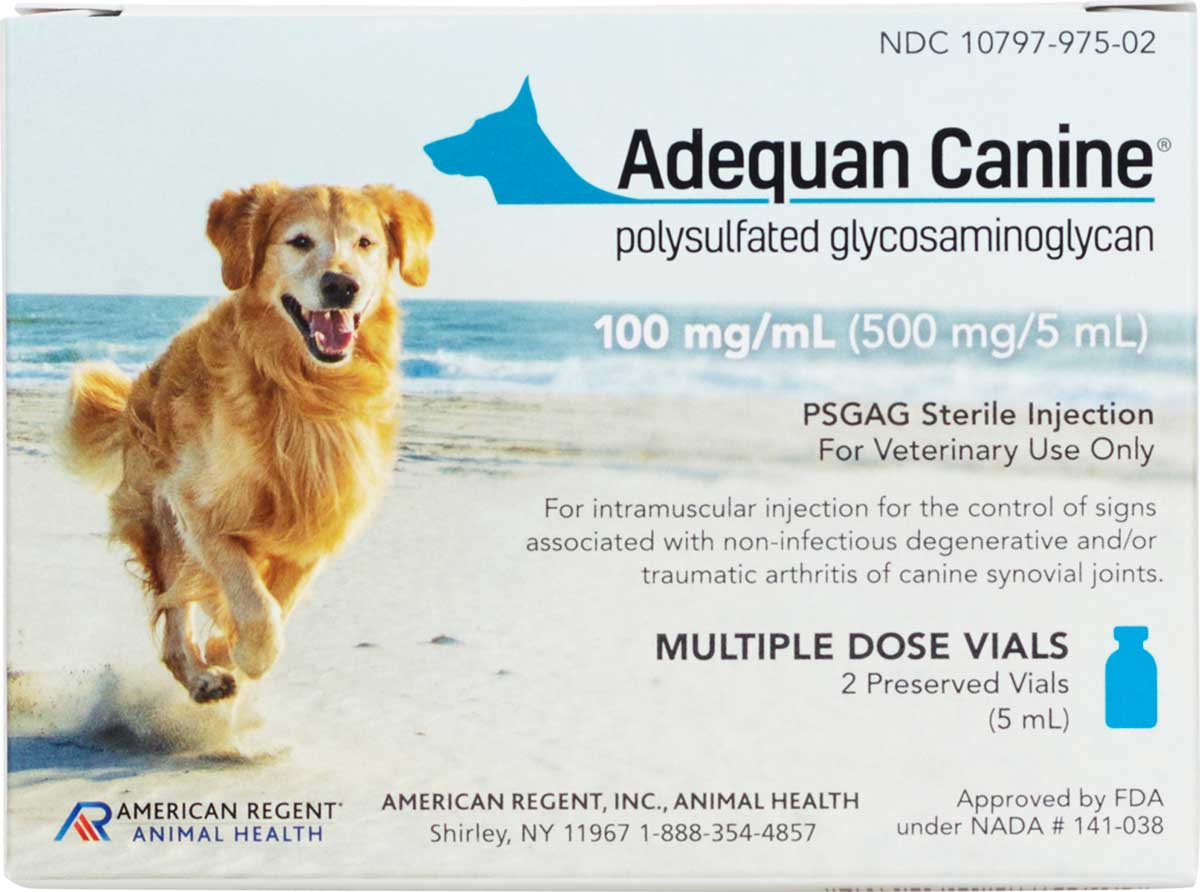Ichon injection for dogs arthritis – Delve into the realm of Ichon injection for dogs with arthritis, an innovative treatment that promises relief and mobility. This comprehensive guide unveils the mechanism of action, clinical efficacy, safety profile, dosage, administration techniques, contraindications, precautions, monitoring strategies, and follow-up care associated with this groundbreaking injection.
Discover how Ichon injection harnesses the power of interleukin-1 receptor antagonist (IL-1Ra) to combat inflammation, alleviate pain, and restore joint function. Explore the compelling clinical evidence supporting its effectiveness in reducing lameness, improving mobility, and enhancing overall well-being in arthritic dogs.
Ichon Injection for Dogs Arthritis




Ichon injection is a novel treatment option for dogs with arthritis. It is a recombinant form of interleukin-1 receptor antagonist (IL-1Ra), which is a naturally occurring protein that blocks the effects of interleukin-1 (IL-1), a pro-inflammatory cytokine.
Mechanism of Action, Ichon injection for dogs arthritis
IL-1 is a key mediator of inflammation and pain in arthritis. By blocking the effects of IL-1, Ichon injection can reduce inflammation and pain in dogs with arthritis.
Clinical Efficacy
Clinical studies have shown that Ichon injection is effective in reducing pain and lameness in dogs with arthritis. In one study, dogs treated with Ichon injection showed a significant improvement in pain scores and lameness scores compared to dogs treated with placebo.
Safety Profile
Ichon injection has a good safety profile in dogs. The most common side effects are mild and transient, such as injection site reactions and gastrointestinal upset.
Ichon Injection for Dogs Arthritis




Ichon Injection for Dogs Arthritis: Dosage and Administration
To ensure the safe and effective use of Ichon injection for dogs with arthritis, it is crucial to follow the recommended dosage and administration guidelines.
Dosage:
- The recommended dosage of Ichon injection for dogs with arthritis is 0.1 ml per 10 kg of body weight.
- This dosage may vary depending on the severity of the dog’s condition and the veterinarian’s assessment.
Frequency and Duration:
- Ichon injection is typically administered once a week for a period of 4 to 6 weeks.
- The veterinarian may adjust the frequency and duration of administration based on the dog’s response to treatment.
Administration Technique:
- Ichon injection is administered subcutaneously, meaning it is injected under the skin.
- The injection site should be clean and free of hair.
- The veterinarian or a trained veterinary technician will administer the injection using a small needle.
Ichon Injection for Dogs Arthritis




Contraindications and Precautions
Contraindications
- Ichon injection should not be used in dogs with a known hypersensitivity to the drug or any of its components.
- Ichon injection should not be used in dogs with active infections.
- Ichon injection should not be used in dogs with severe liver or kidney disease.
Precautions
- Ichon injection should be used with caution in dogs with a history of seizures.
- Ichon injection should be used with caution in dogs with a history of gastrointestinal problems.
- Ichon injection should be used with caution in dogs that are pregnant or nursing.
Potential Side Effects
- The most common side effects of Ichon injection in dogs with arthritis are vomiting, diarrhea, and loss of appetite.
- Other potential side effects of Ichon injection in dogs with arthritis include seizures, tremors, and liver damage.
Ichon Injection for Dogs Arthritis




Monitoring and Follow-up
Monitoring the response to Ichon injection in dogs with arthritis is crucial to ensure its effectiveness and minimize potential adverse effects. Regular follow-up appointments allow the veterinarian to assess the dog’s condition and adjust the treatment plan accordingly.
Monitoring Parameters
- Pain level:The dog’s pain level should be monitored closely. This can be done through observation of the dog’s behavior, such as lameness, stiffness, and reluctance to move, as well as through palpation of the affected joints.
- Joint function:The dog’s joint function should be assessed to determine the range of motion and the presence of any swelling or effusion.
- Side effects:The dog should be monitored for any side effects from the Ichon injection, such as injection site pain, swelling, or lameness.
Follow-up Schedule
The follow-up schedule after Ichon injection in dogs with arthritis will vary depending on the individual dog’s response to treatment. In general, the veterinarian will recommend follow-up appointments at 2 weeks, 4 weeks, and 8 weeks after the injection.
Criteria for Discontinuing Ichon Injection
Ichon injection may need to be discontinued if the dog does not respond to treatment or if it experiences severe side effects. The veterinarian will make this decision based on the dog’s clinical signs, response to treatment, and overall health.
User Queries
What is the mechanism of action of Ichon injection?
Ichon injection contains interleukin-1 receptor antagonist (IL-1Ra), which blocks the action of interleukin-1 (IL-1), a key inflammatory cytokine involved in arthritis.
How often is Ichon injection administered?
The frequency of Ichon injection administration varies depending on the individual dog and the severity of their arthritis. Typically, injections are given every 2-4 weeks.
Are there any side effects associated with Ichon injection?
Ichon injection is generally well-tolerated, but potential side effects include injection site reactions, lethargy, and gastrointestinal upset.